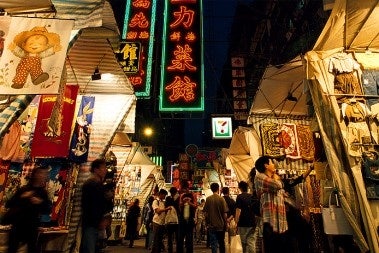Chinese Luxury Consumers Spend Lavishly On Gifts; Follows Previous Studies Showing Men, Businesspeople Top Buyers#

Last year, in their book "Luxury China: Market Opportunities and Potential," Pierre Lu and Michel Chevalier wrote that luxury consumption in China is still very much dominated by men, most of whom spend lavishly on high-end products with the intention of giving them as gifts.
Lu and Chevalier's assertions were recently confirmed in a study by HSBC, which found that men made up the bulk of luxury consumers in China, although the study found that an increasing percentage of the luxury purchases made by men in China is going to wives, girlfriends, or "second wives." (e.g., mistresses.)
This week, a new study by McKinsey & Company indicates that around 50% of Chinese consumers who bought luxury goods last year did so with the sole intention of giving them to others as gifts.This is up from the 38% of consumers purchased with intent to "gift" in 2008.
According to China Radio International (CRI), part of the rise in luxury gift-giving last year was due to the relaxation of travel restrictions and the resulting jump in "shopping tourism." As Jing Daily wrote in February, the largest-ever Chinese tour group to hit New York parted ways with around $6 million over the course of the Chinese New Year holiday, and Hong Kong retailers have been seen income soar as more mainlanders flock to the city's duty-free shops and high-end malls. From CRI:
During this year's Spring Festival, or the Chinese Lunar New Year, more than 1,000 Chinese tourists swarmed to New York's Fifth Avenue to shop, prompting international media to say that Chinese people had sent red envelopes to the world during Spring Festival.
A tourist surnamed Zhao, from Qingyuan in south China's Guangdong Province, bought five watches at Vacheron Constantin in New York during the holiday.
"Many of my clients like this kind of watch," he told the China Economic Weekly.
The report says Chinese consumers are getting more and more familiar with international luxury brands. For Zhao, it is his third time shopping in the U.S.
"My wife and I haven't gone shopping in Hong Kong in a long time, even though it is easy to travel from Guangdong to Hong Kong. We chose to go shopping in the U.S. because the price in the U.S. is the cheapest," Zhao said.
Clearly, China's elite ranks of luxury consumers -- half of whom purchase items to give others -- are taking advantage of lower taxes (and no "luxury tax" elsewhere) on their global shopping sprees. But is this good for business in China? Obviously, major luxury brands -- most of whom have sunk a great deal of money into setting up gleaming flagships in China -- would love to see mainland-based buyers shopping locally, rather than just treating boutiques as showrooms to "test drive" the newest items before buying them in Hong Kong or online. However, opinions are mixed in China about whether the country should abolish its notoriously high luxury tax. From CRI:
Pan Qinglin, vice chairman of the Overseas Chinese Federation in north China's Tianjin, says, "Imposing a luxury tax is a good way to reasonably regulate consumption and it could regulate the present inequality in social income distribution."
However, Huang Hai, former deputy minister of commerce, disagrees with imposing a luxury tax.
"China has imposed high tariffs on imported luxury goods and special consumption taxes on some commodities, and the result is that the prices of imported luxury goods are much more expensive than in many other countries. Therefore, some Chinese people turn to shopping abroad even though China needs to increase domestic demand," Huang said.